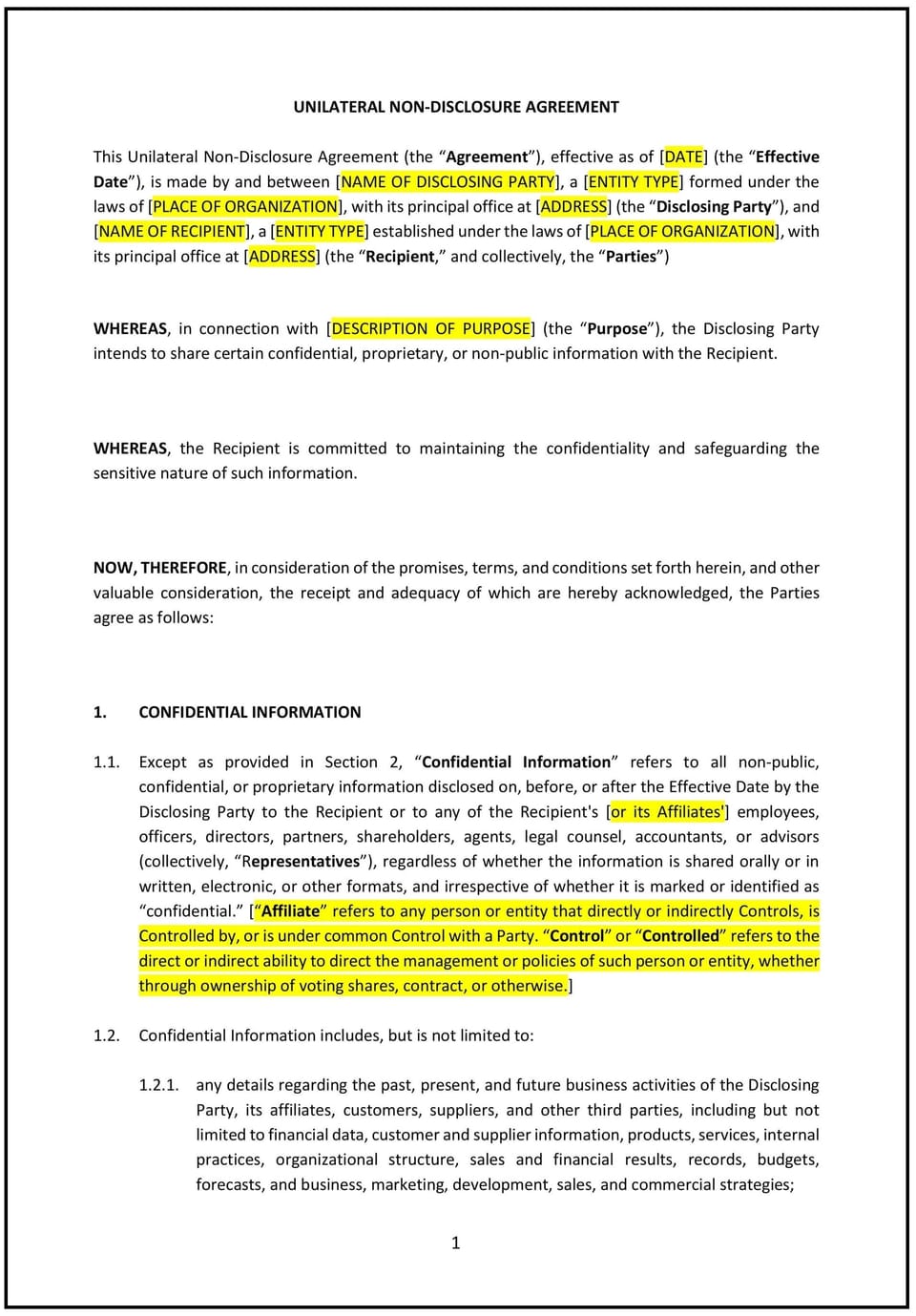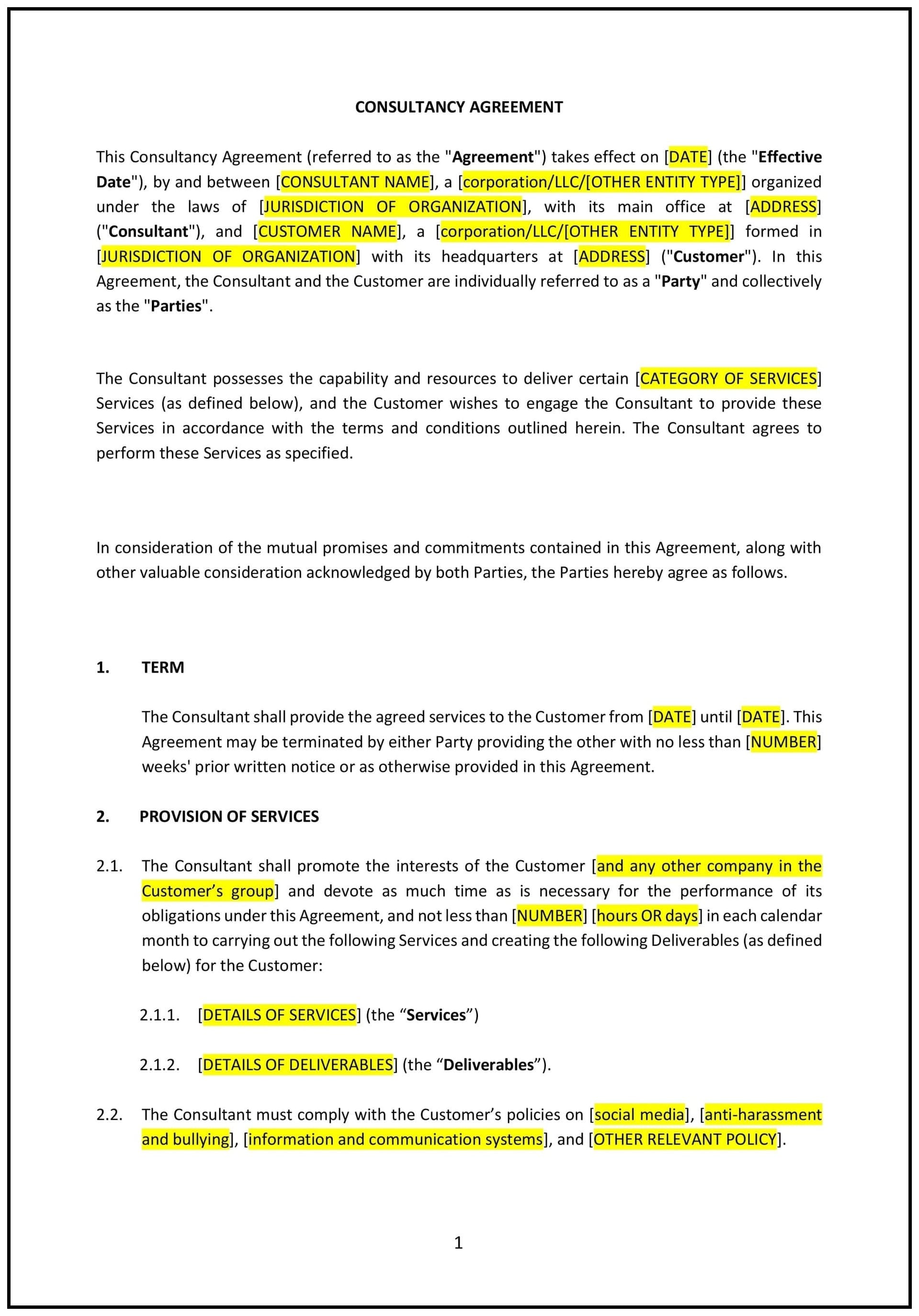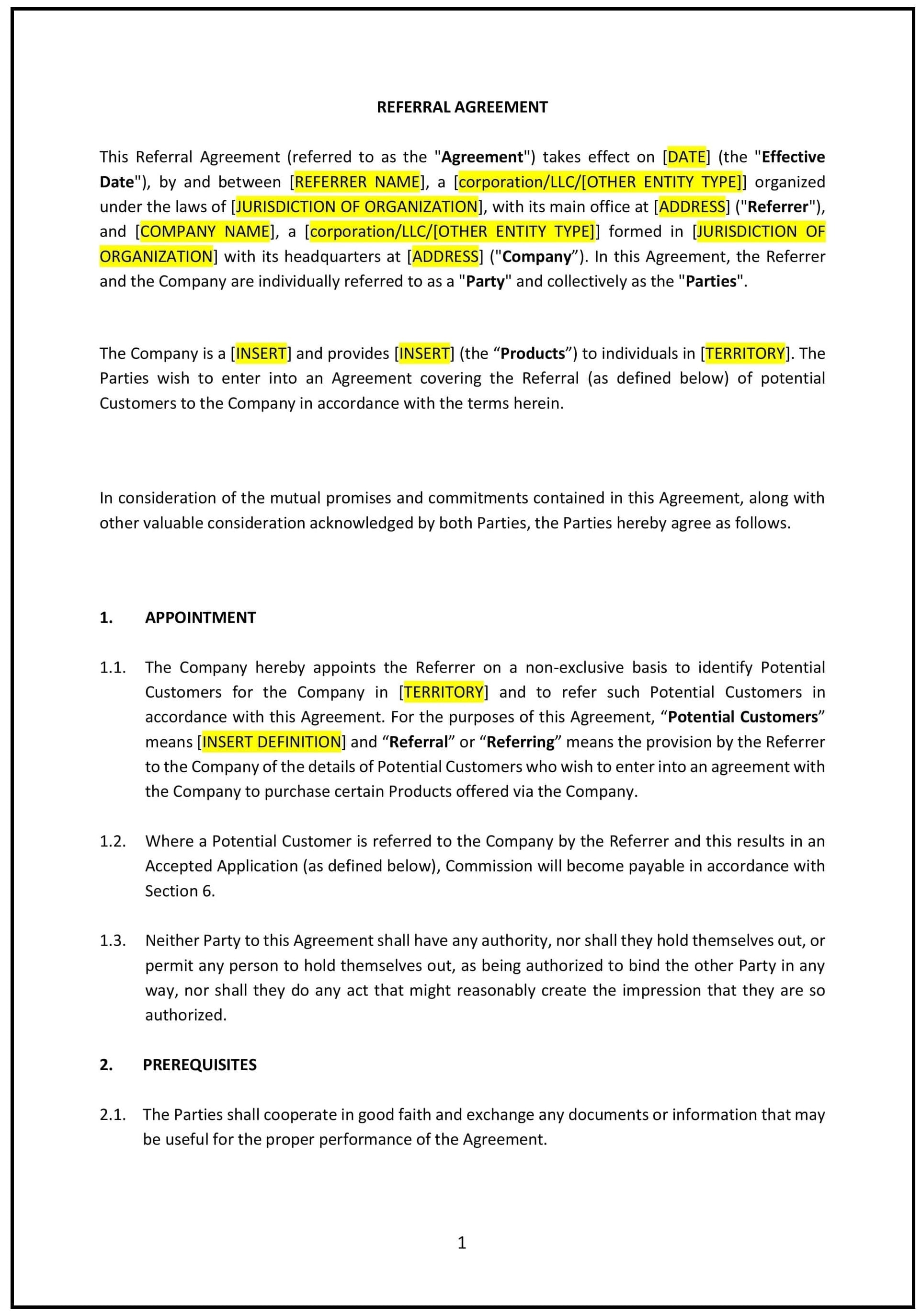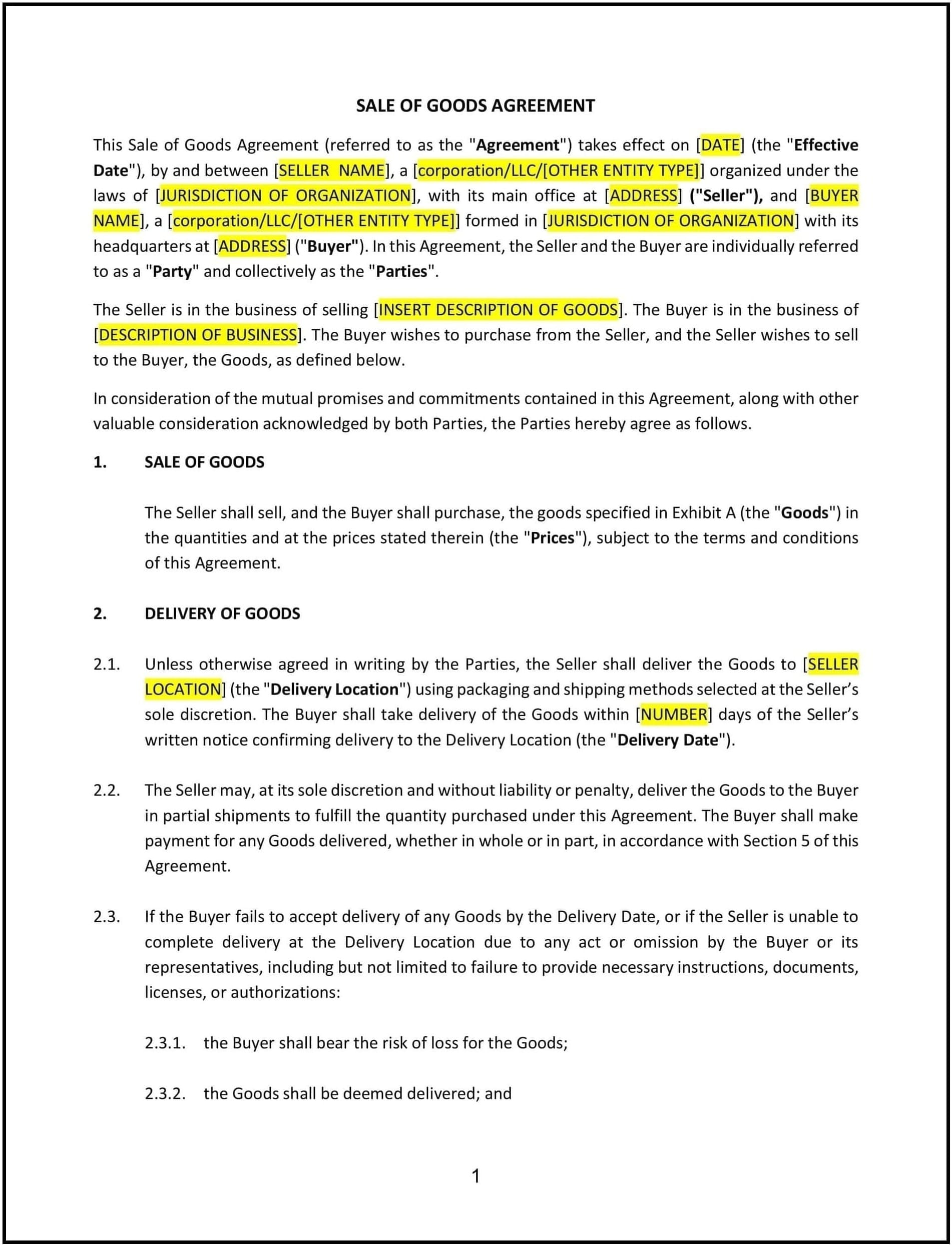Non-Disclosure Agreement (Unilateral) (Arizona): Free template

Non-Disclosure Agreement (Unilateral) (Arizona)
A Non-Disclosure Agreement (Unilateral) in Arizona is a contract that protects confidential information shared by one party with another. Unlike a mutual NDA, this agreement binds only the receiving party to confidentiality obligations, making it commonly used when businesses disclose sensitive information to employees, contractors, or potential investors.
Businesses in Arizona use this agreement to safeguard trade secrets, intellectual property, and proprietary business details. It helps prevent unauthorized disclosures and provides legal recourse if confidential information is misused.
Tips for drafting and maintaining a Non-Disclosure Agreement (Unilateral) in Arizona
- Clearly define what constitutes confidential information, including specific examples like trade secrets, business plans, or technical data, while excluding publicly available or independently developed information to ensure enforceability under Arizona law.
- Specify that the agreement is unilateral, clearly identifying which party is disclosing information and which party is receiving it to avoid confusion about obligations.
- Include Arizona-specific considerations, such as compliance with data privacy laws (e.g., Arizona Revised Statutes § 44-7501) if sensitive personal or financial information is being shared.
- Set a reasonable time limit for confidentiality obligations, as Arizona courts may invalidate agreements with indefinite or excessively long durations.
- Outline permitted uses of the confidential information, ensuring the receiving party understands they can only use it for the stated purpose (e.g., evaluating a business opportunity).
- Require the return or destruction of confidential materials upon request or at the agreement’s expiration to protect the disclosing party’s interests.
- Include remedies for breach, such as injunctive relief, monetary damages, or attorney’s fees, to provide recourse in case of unauthorized disclosure or misuse.
- Specify that Arizona law governs the agreement and designate Arizona courts as the jurisdiction for disputes to simplify enforcement and legal proceedings.
- Address exceptions to confidentiality, such as disclosures required by law or court order, to align with Arizona legal standards and avoid conflicts.
- Use clear, concise language to ensure the agreement is easy to understand and enforceable, avoiding vague terms that could lead to misinterpretation or disputes.
Frequently asked questions (FAQs)
Q: What should Arizona businesses include in a Non-Disclosure Agreement (Unilateral)?
A: Businesses should include definitions of confidential information, exclusions, duration, permitted disclosures, and breach consequences.
Q: How does a Non-Disclosure Agreement (Unilateral) protect businesses in Arizona?
A: It ensures that confidential business information remains protected when shared with employees, contractors, or third parties.
Q: How long should a Non-Disclosure Agreement (Unilateral) last in Arizona?
A: The duration varies, but it typically ranges from two to five years, with indefinite protection for trade secrets.
Q: Can an Arizona business enforce a Non-Disclosure Agreement (Unilateral) against former employees?
A: Yes, but the agreement must be reasonable in scope and duration to be legally enforceable.
Q: Are Non-Disclosure Agreements (Unilateral) recognized by Arizona courts?
A: Yes, Arizona courts generally enforce NDAs if they are clear, reasonable, and do not overly restrict fair competition.
This article contains general legal information and does not contain legal advice. Cobrief is not a law firm or a substitute for an attorney or law firm. The law is complex and changes often. For legal advice, please ask a lawyer.


